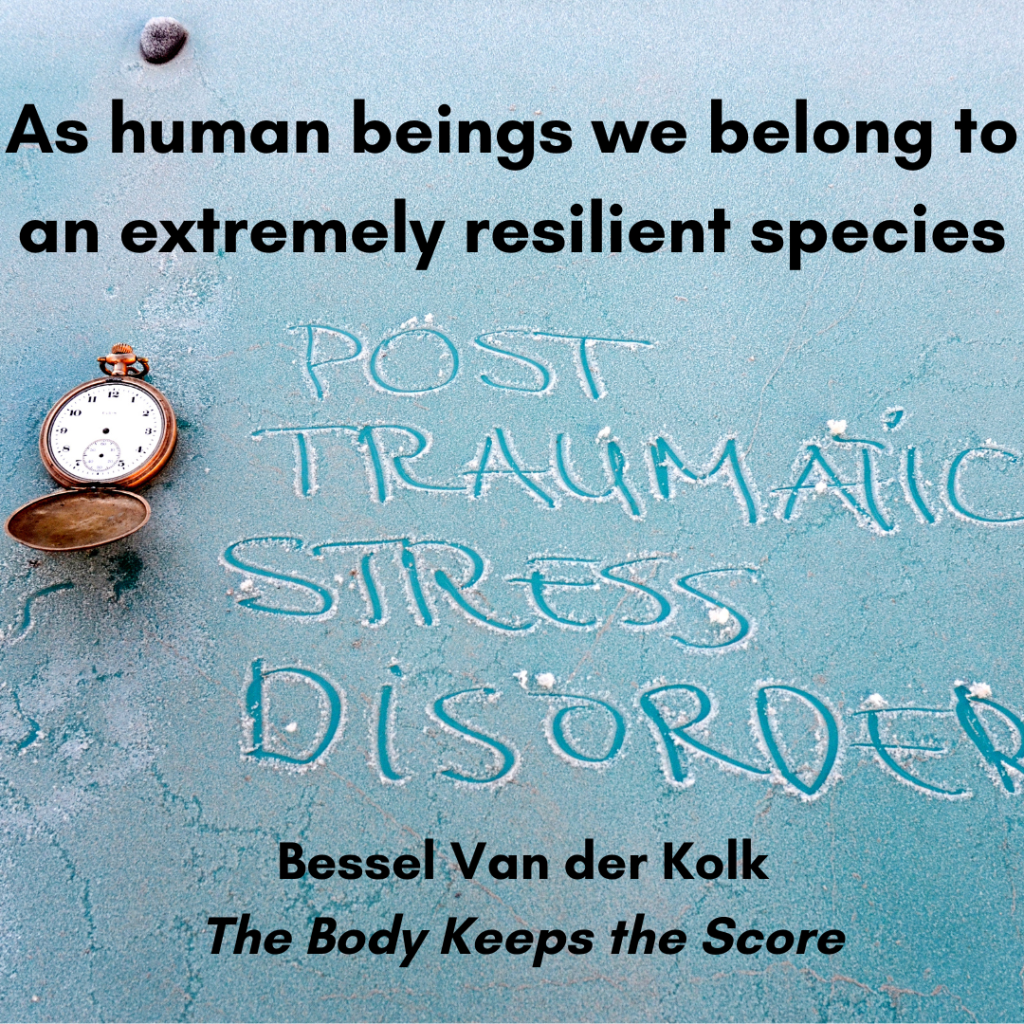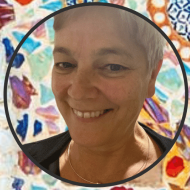Sunday Blog 122 – 11th February 2023

Trauma, that is. I’ve waded through the entirety of the tiny print, very dense The Body Keeps the Score by Bessel Van der Kolk in the last week. Because I need to have this seminal text under the belt. Before I get too far into reviewing my single incident trauma memoir. Before I launch myself into progressing podcast ideas. Or so I tell myself.
The book is both for mental health practitioners and every day people who want to know how to get themselves or others out of the post-trauma cul-de-sac.
Reading it raised my hackles about the politics of trauma and mental health care. As a long-standing clinician-researcher, he shares many tales of his professional frustration in trying to bring more effective therapies into the mainstream. And the difficulty of getting recognition of the specific and different impact of trauma when it’s experienced in childhood.
Yes, Vietnam Vets suffered terribly, but they were usually young men before being exposed to trauma. There is something in our society that just doesn’t want to own the reality that harm can happen in the home, to children, and that it can create a specific set of behaviours and wounding that need a different sort of toolkit from that applied to adults.
It was 2019 when I first heard about comedian Corey White. He was being interviewed on Conversations about his memoir Prettiest Horse in the Glue Factory. It unpacks his traumatic childhood in a violent, chaotic home and an adolescence in foster care.
The title alone would have sold me but the interview was warm and compelling. I downloaded the audio book immediately – I was in Limnisa in Greece at the time for a writing retreat (middle class wanker alert). There is patchy internet at Limnisa to ensure we get on with our writing projects. But I walked up the hill to get enough bandwidth to download the audio book the moment I had finished the Conversations episode. Then I could not stop listening. I Could Not Stop. I would listen, then get up and dunk myself in the ocean, and then return to keep listening until I had finished.
I was someone who always worried that my parenting was not up to scratch and that I would damage my child. I have my unpleasant memories including when I walked around the block for about fifteen minutes, thinking my toddler daughter was asleep. I returned to find her awake, distressed, banging on the window.
Then I read about the infant Corey being left in a caravan, without food or water for some 72 hours.
A helpless infant. 72 hours.
It’s important we never underestimate the resiliency of humans. It’s vital that we keep the possibility of healing and wholeness, no matter how extreme the trauma endured.
As well as marvelling at his resilience I raged at the systemic issues Corey’s memoir unpacked. Why, oh why was he in his mid-twenties before he learned anything about complex PTSD? He described it as finding a key at last to his many baffling and self-destructive behaviours. Why did this never come up at any time during foster care, mental health, drug and alcohol and prison programs? Why isn’t there some kind of effective intervention for young people in out of home care? Or if there are effective interventions, why are they so hard to access for people who’ve been through experiences like Corey’s?
Bessel Van der Kolk includes a whole chapter on theater for healing. I loved this quote from a convenor of The Possibility Project in New York, a theater program for foster kids.
“You cannot help, fix, or save the young people you are working with. What you can do is work side by side with them, help them to understand their vision and realize it with them. By doing that you give them back control. We’re healing trauma without anyone ever mentioning the word.”
Bessel Van der Kolk, The Body Keeps the Score, page 342
